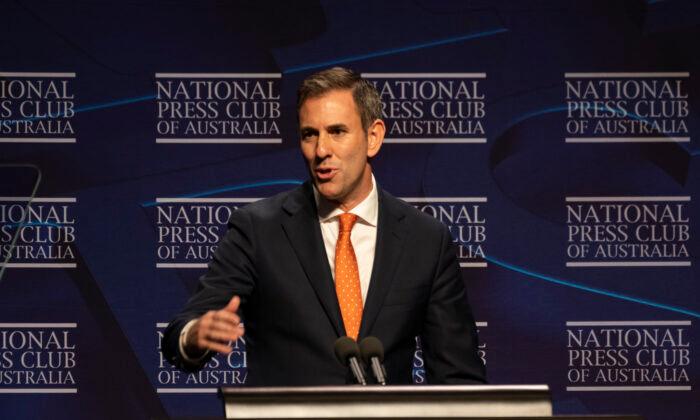Australian Treasurer Jim Chalmers has admitted that he should have promised Australians that Labor had no plans to change or touch the Capital Gains Tax (CGT) exemption on the family home.
The CGT is the tax paid when Australians sell their investments, such as stocks, bonds, or real estate. Homeowners in Australia, however, are exempted from paying CGT if they are selling their own residences.In an intense interview with Sevens’s Sunrise host David Koch on Wednesday, Chalmers was pressed several times on whether he could be trusted to not ever make a change to the Capital Gains Tax (CGT) exemption.
However, Chalmers refused to guarantee that Labor would not touch the CGT exemption, meaning homeowners could now be at risk of having to pay tax when selling their own place of residence in the future.
“So just say yes that you have absolutely guaranteed no changes ever to the Capital Gains Tax exemption on our family homes. You could just say yes, that you guarantee that,” said Sunrise host David Koch.
“I could say to your viewers that we haven’t been focused on it; we haven’t been working on it,” Chalmers replied.
Koch then repeatedly asked the treasurer to guarantee Labor would not be looking at capital gains taxes, to which Chalmers replied: “It’s not my intention, It’s not something I’ve been thinking about, working up, contemplating.”“We don’t know what the situation might look like in 10 or 15 years’ time,” he said.
Prime Minister Moved to Assure Australians
However, Prime Minister Anthony Albanese later moved to assure Australians that Labor would not make changes to GCT on the family home.In a press conference a few hours later, Chalmers was asked whether he would follow the Prime Minister in making the commitment.
The Treasurer replied,: “I do, do that. I should have done that this morning.”
But he defended his earlier response, saying that he was trying to focus on what Labor was doing, not what they were not doing.
“I don’t want to get into the practice of coming before you each day and working through hundreds of billions of dollars of tax concessions and playing the same rule in, rule-out game,” he said.
Super Fund Tax Charges Under Intense Scrutiny
The misstep from the treasurer comes as the centre-left Labor government is facing pressure after it decided to double the concessional tax rate on super balances that contain more than $3 million (US$2.02 million) following an election promise that Labor would not be taxing the superannuation scheme.The decision comes as Labor’s spending on social welfare programs such as Medicare and NDIS continues to climb.
It also said that the change would only affect 0.5 percent of the population—around 80,000 individuals—while 99.5 percent of Australians will be unaffected.
But Shadow Finance Minister Jane Hume has noted that the change is “not indexed, which means that three million today is going to be very different to three million in five years times– even in two years’ time when this kicks in.”
“For younger people that are saying ‘this won’t affect me’—well when you retire, what will three million be worth then?” Hume told Sky News.
Meanwhile, former coalition senator, Eric Abetz, said that the government’s reasonings around the changes to the superannuation had the hallmarks of the “politics of envy.”
“It stands to reason that in any area of human endeavour, some will do better than others, be it in sports, music, academia, or wealth creation. Therefore, as a society, we need to celebrate and honour success in whatever field, as long as it is achieved within the parameters of the law,” he said.
“So, if people have the capacity and inclination to squirrel away extra sums in superannuation, adding to the totality of savings, then that is a behaviour we should be applauding.”




